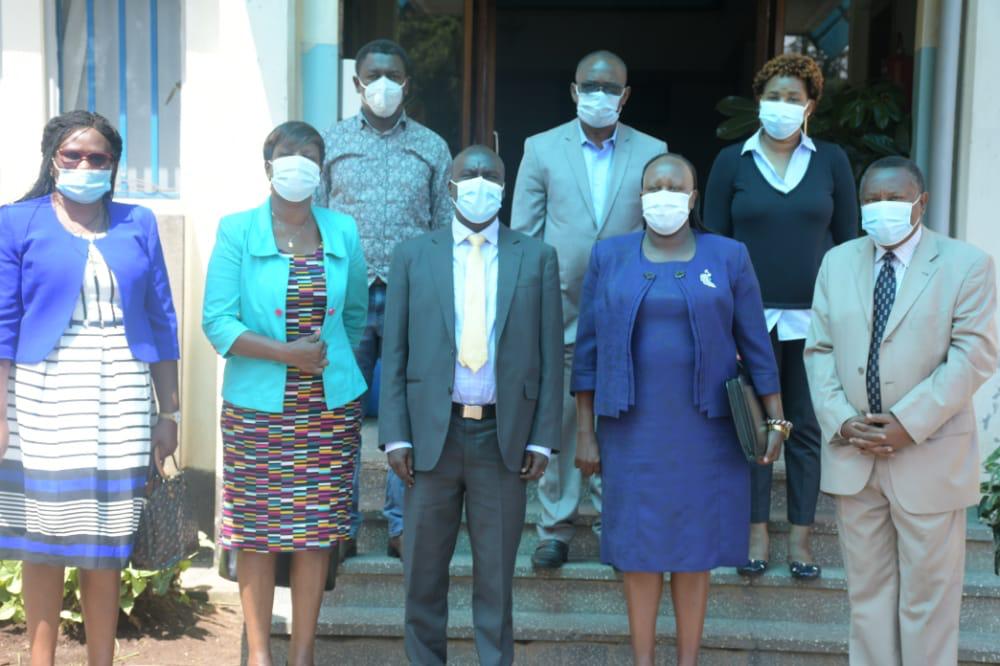House ICT Committee moves to stem gaming and betting in the media
The National Assembly could soon adopt measures that will make it hard for broadcasters to operate gaming and betting programs if the House approves recommendations by regulators and industry stakeholders. Lawmakers through the Departmental Committee on Information, Communication and innovation chaired by Marakwet West MP, Hon. William Kisang are mulling over introducing a raft of amendments to the existing gaming and betting law to arrest runaway emergence of betting and gaming propagated by the broadcast media across the country.
The Committee is now proposing several changes to institute measures that will curb harmful effects on unsuspecting Kenyans and more so children, from gaming and betting.The Members are optimistic that after engagements with several stakeholders involved in regulating the betting and games industry, their observations will inform what amendments to float when the Gaming Bill, 2019 is considered at the Committee Stage in the House. The Bill has already been approved at the Second Reading and is awaiting consideration at the Committee Stage.
The legislators who expressed concerns about the harmful effect that the proliferation of betting and gaming programs may have on the public especially children, on Tuesday summoned the Communication Authority (CA) and the Betting Control and Licensing Board (BCLB). Among the matters the committee was concerned with was an explanation why there is steady rise in the number of operators as well as the process of issuance of licences by BCLB. The Members also sought to know what policies and guidelines have been developed by BCLB to regulate the media in carrying out betting.
Filing their responses to the Committee , officials from the Communication Authority of Kenya explained that in accordance with the programming code for Broadcast Services, media houses who air third party content, are free to air gaming related programming either as an advertisement or a competition. They however noted that broadcasters are responsible for advertising material transmitted by their stations and must therefore ensure that all advertisements are legal, honest, decent, truthful and conform to the rules of fair competition.
However, the Authority was quick to add that while the mandate of providing guidelines on programming and advertisements related to gaming including the appropriate message is domiciled under BCLB, it is imperative that the BCLB guidelines are harmonise with the provisions of the programming code and classification. This recommendation by CA is with respect to the timelines for airing of gaming related programming to safeguard against the proliferation of betting programs during the watershed period on broadcast platforms. They further submitted that there maybe need for KFCB to appropriately classify content related to gaming in order to guide the time of airing the same.
In what may appear to be a late discovery by regulators that broadcast stations have taken advantage over a lacuna within the multi-agency sector regulating regime, CA has now called for a multi-agency approach in addressing these issues on a continuous basis.
Other players involved in this matter besides BCLB and CA are Media Council of Kenya (MCK) which regulates the ethical conduct of media practitioners and journalists and the Kenya Film Classification Board (KFCB) whose mandate is to rate content aired on broadcast stations.
On their part, BCLB admitted that the activities of the media has the potential to cause a harmful impact on the public and especially children. They however submitted that they were unaware of the reasons behind the rampant gambling related promotions in the broadcast media.
"Hon. Chair, the board is not fully aware of the reasons behind the rampant gambling related promotions in the broadcast media. However, several reasons have been advanced one being the misapprehension of what constitutes gaming activity requiring authorization, the failure to acknowledge and observe the gaming advertisement guidelines, exploiting the advantages of online ticketing, and lastly, devastating economic effects of Covid-19 where probably most radio stations lost a substantial amount of advertising revenue due to closure of many businesses", read a section of their response to the Committee.
The board noted that though from time to time they had issued advertising guidelines to licensed gaming operators, media houses are required to adhere to these guidelines when licensed operators approach them for advertisement.
Pressed for evidence that the board had from to time taken action on unscrupulous operators in the gaming sector, the board tabled a document showing that they had directed Safaricom PLC to suspend over seventy (70) paybill numbers registered by these operators on diverse dates between December 2020- August 2021.
The Committee Members however not contented with responses given by CA and BLCB, have now tasked the two regulators to furnish the Committee with the information regarding the list of media outlets, paybill numbers, the period of time the operators have been running the paybill numbers. Peeved by claims that despite an ongoing crackdown by BCLB on irregular operators, and that media outlets were still carrying out betting activities in total disregard of this crackdown, the Committee has also asked to be furnished with details on any taxes avoided or evaded by these operators and the status of the crackdown on unscrupulous operators in the gaming sector across the media.
















